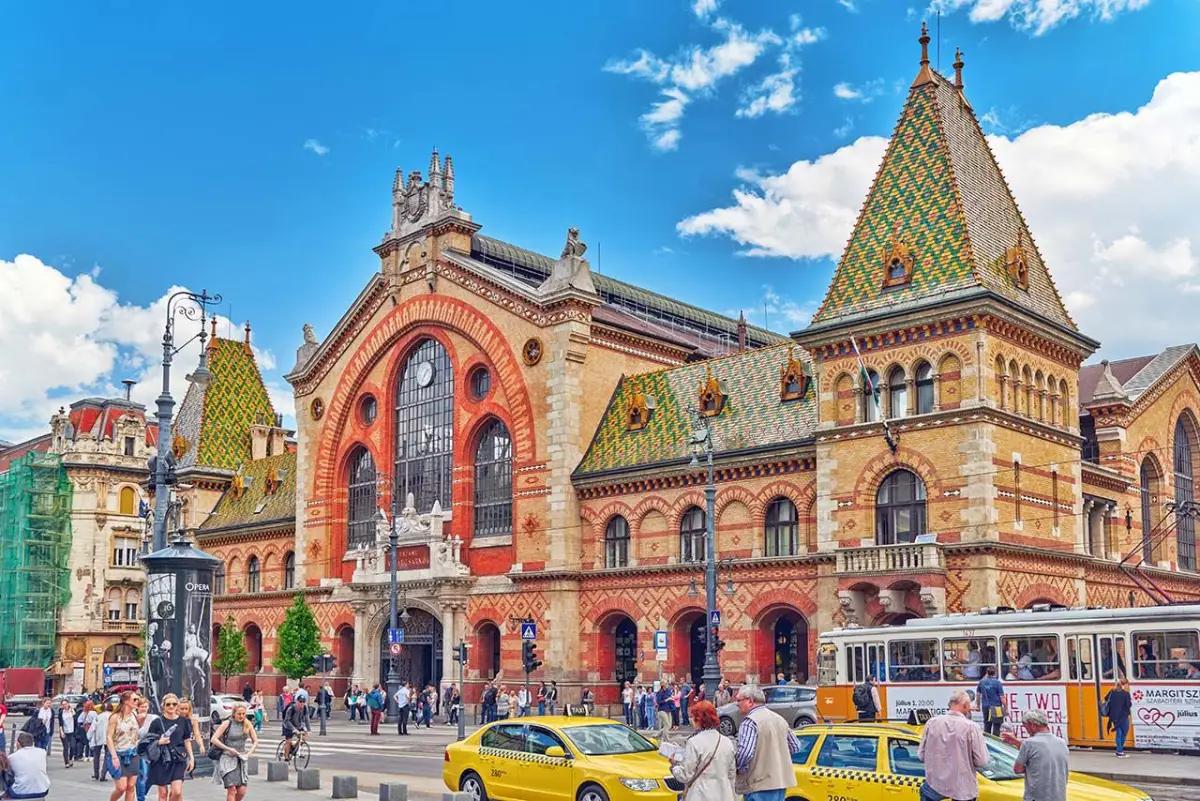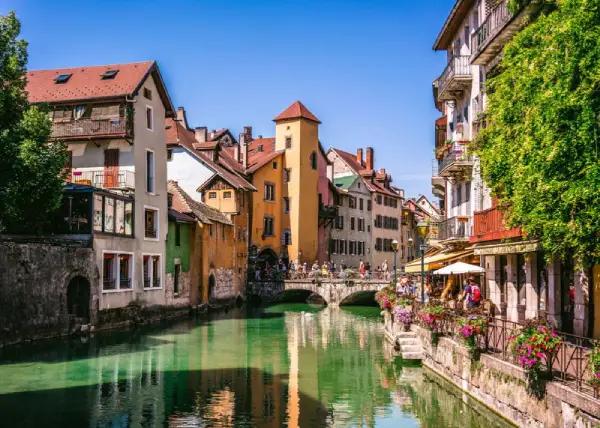TL;DR:
- Monthly Living Costs: $1,500-$2,000 for housing, food, transportation, and other expenses.
- Housing Costs: $500-$700 for a 1-bedroom in Budapest, $300-$500 outside Budapest. Rural areas cheaper.
- Utilities: $100-$150 monthly for electricity, heating, cooling, water, and garbage.
- Food Expenses: $200-$250 per month; local markets have best deals.
- Transportation: $30 for a monthly public transport pass in Budapest.
- Healthcare Costs: Public healthcare visit ~$4; Private clinic visit $50-$100; Expat insurance ~$100/month; Dental crowns ~$300.
- Daily Living Expenses: Grocery and dining out costs—bread (180 HUF), milk (250 HUF), dining out (~2,500 HUF per meal).
- Entertainment: Movie tickets (1,800 HUF), theater/musical events (3,000-7,000 HUF).
- Financial Planning: $1,500-$2,000 for comfortable living in Budapest, budgeting for taxes, unexpected expenses, and hidden costs.
Thinking about retiring in Hungary? You’re not alone! Hungary offers charm, culture, and affordability. Let’s dive into what really matters: Can you live comfortably on your retirement budget? This post breaks down housing, food, and healthcare costs, helping you plan smartly for your golden years. Ready to find out if Hungary’s the right fit for your retirement dreams? Keep reading!
What are the General Living Expenses in Hungary for Retirees?
How much money do you need to live comfortably in Hungary? About $1,500 to $2,000 a month. This amount covers housing, food, transportation, and other costs. Retirees can live well on this budget.
Cost of Housing and Average Monthly Rent: Renting in Hungary varies by location. In Budapest, expect to pay around $500 to $700 a month for a one-bedroom apartment. Outside Budapest, rents drop to about $300 to $500 a month. Opt for small towns for even lower rents.
Utility Costs and Utility Bill Management: Utilities in Hungary are affordable. Monthly bills for electricity, heating, cooling, water, and garbage range from $100 to $150. Track usage to manage bills better.
Food Expenses and Cost of Groceries: Groceries are reasonably priced. Plan to spend about $200 to $250 per month on food. Local markets and smaller shops often offer the best deals.
Transportation Costs and Public Transport Options: Public transport in Hungary is efficient and cheap. A monthly pass in Budapest costs around $30. Trains and buses connect rural areas to cities, offering affordable travel options.
Budget for Retirees and General Budgeting Tips: Budgeting helps maintain a comfortable lifestyle. Allocate funds for housing, food, utilities, and leisure. Save by using local markets and public transport. Avoid overspending by planning ahead. For detailed cost information and advice, visit Numbeo’s Hungary Cost of Living page.
How Affordable is Housing in Hungary for Retirees?
If you’re a retiree looking at Hungary, housing costs matter. The city you live in affects these costs. Budapest, the capital, has higher prices. Expect to pay around €900 a month for a two-bedroom apartment in the city center. Move to the outskirts or smaller towns, and costs drop to about €500. Rural areas are much cheaper, with homes averaging around €300 per month.
Affordable Housing
Finding budget-friendly living options in Hungary is possible. If you want to save money, think about shared housing. This option can cut costs significantly. Often, people share homes in urban areas to save on rent and utilities. If you prefer a budget but not sharing, smaller towns and communities offer good options.
Real Estate Overview
Hungary’s real estate market favors buyers. Buying a small apartment in Budapest may cost around €2,500 per square meter. Outside the city, expect to pay about half that. Renting remains a popular choice, especially if you seek flexibility. Rental prices can vary greatly, with big differences between urban and rural settings.
Utilities Cost
Utility costs depend on the type of home. For a small apartment, you may pay around €100 per month for electricity, water, and heating. Larger homes could push that to €200 or more. Always check if these are included in rent before signing a lease.
Retirement Homes
For retirees, Hungary offers several affordable options. Retirement homes or villages provide community and care. Costs here tend to be higher, averaging about €1,000 per month, but they include food and some healthcare. For those who need more care, some retirement homes are tailored to meet these needs.
Living in Hungary as a retiree offers many housing options to fit different budgets. From bustling Budapest to serene rural areas, Hungary provides affordable choices for all. If you choose wisely, you can find a place that fits your budget and lifestyle.
What are the Healthcare Costs for Retirees in Hungary?
Healthcare in Hungary offers two main options: public and private. The public system provides very low-cost services. Many retirees prefer this for regular check-ups and minor treatments. The price for a visit to a general practitioner (GP) costs as low as $4.
Private healthcare, however, is both faster and more comfortable. A visit to a private clinic might cost around $50-$100. Treatments or hospital stays in private hospitals can be more expensive but remain affordable. For example, a night in a private hospital can range from $200 to $400.
Medical treatments in Hungary come at a fraction of the cost compared to countries like the United States. A dental crown may cost around $300 here, whereas it would be much higher elsewhere.
When considering expat insurance in Hungary, multiple options exist. Some plans start as low as $100 per month. These plans cover most medical needs including surgeries, hospital stays, and specialist consultations. Expat insurance helps bridge the gap between public and private services.
Telemedicine is growing in popularity too. Costs for online consultations typically range from $30 to $50. This provides an option for quick, convenient medical advice from the comfort of home.
Senior healthcare programs are available and quite extensive. Hungary offers various wellness and preventive care programs for seniors. Public healthcare also provides many services for chronic diseases and long-term care.
Understanding these healthcare costs helps retirees budget effectively. The healthcare system in Hungary is cost-effective and provides many suitable options for expatriates. Whether opting for public services, private care, or expat insurance, retirees find the healthcare system in Hungary quite accommodating.
What Are the Daily Living Expenses Like in Hungary?
Budgeting for daily costs in Hungary is simple once you know about the key items. Let’s start with food expenses. Grocery prices in Hungary are quite reasonable. A loaf of bread costs around 180 forints. A liter of milk sells for about 250 forints. Fresh fruits, like apples, are approximately 400 forints per kilo. Monthly food budgets can vary, but many retirees spend about 70,000 to 100,000 forints on groceries each month.
Dining out in Hungary also won’t break the bank. A meal at a local restaurant costs roughly 2,500 forints. If you prefer international fast food, like a burger combo, expect to pay around 1,500 forints. This makes eating at home a bit cheaper, but still, the variety and quality of Hungarian dining often tempt retirees to eat out.
Entertainment is another area where Hungary shines. Movie tickets are about 1,800 forints each. Going to the theater or a musical event can cost between 3,000 and 7,000 forints. If you love cultural activities, Hungary offers museums and festivals at affordable rates. Entry to a museum usually costs about 2,000 forints.
Leisure activities can vary in cost. A gym membership might be around 10,000 forints a month. If you like outdoor activities, Hungary has many parks and hiking trails for free. Sports and hobbies can range from 5,000 to 20,000 forints monthly.
To budget for day-to-day expenses, make a weekly list. Start with food and dining costs. Then add entertainment and hobbies. Set aside some money for unexpected items. This way, you can enjoy life in Hungary without financial stress.
Hungary offers a balanced mix of affordable living with rich lifestyle options. Effective budgeting helps you make the most out of your retirement. Always keep an eye on your daily expenses to maintain a comfortable and enjoyable life.
How Do You Plan Financially for Retirement in Hungary?
First, you need a solid budget when you consider retirement planning in Hungary. Plan for housing, food, healthcare, and fun activities. A monthly budget helps you manage your money well. The cost of living can change, so review and adjust your budget as needed.
Wondering about social security benefits? You can get them from your home country while living in Hungary. Also, check if you qualify for any local pensions. Contact your embassy or a financial expert for correct information.
Taxes are important for retirees. Do you have to pay taxes in Hungary? Yes. Both your pensions and other incomes might be taxed. Consult with a tax advisor to help you navigate the tax system.
Need help with financial planning? Hungary has many services that offer help. For example, you can find accountants, wealth managers, and other experts. They can guide you through the rules and help you maximize your budget.
Saving money is key. How much do you need to retire in Budapest? Well, it depends on your lifestyle. But you can live comfortably on around $1,500 to $2,000 a month. Look for deals, live like a local, and cut unnecessary costs to save more.
Watch out for hidden costs. For example, extra fees on imported goods can surprise you. Also, healthcare can be cheaper but always have a buffer for unexpected expenses. In essence, planning carefully and knowing the basics can make your retirement in Hungary enjoyable and stress-free.
Conclusion
Navigating life in Hungary as a retiree can be rich and rewarding. Housing remains budget-friendly, with varied choices across cities and towns. Utilities, food, and transport are all manageable within an average retirement budget. Healthcare offers both public and private options at reasonable costs. Daily expenses, from groceries to leisure, can be easily planned. With smart financial planning, including an understanding of taxes and benefits, retirees can enjoy a comfortable and fulfilling life in Hungary. Consider these tips and insights to make your transition smooth and enjoyable.












